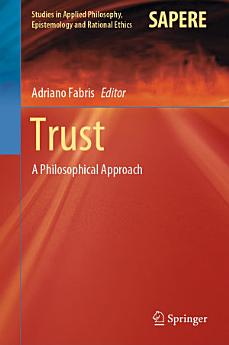Trust: A Philosophical Approach
આ ઇ-પુસ્તક વિશે
This book presents cutting-edge concepts on the question of trust. Written by leading experts, it investigates a paradoxical feature of contemporary society: while information and communication technologies, on the one hand, and scientific discourses, on the other, can promote more informed participation in public and democratic life, they have also led to a dramatic decline in our communicative and cooperative skills.
The book analyzes the notion of trust from an interdisciplinary perspective by combining the normative (continental) and empirical (Anglo-American) approaches and by considering the political, epistemological, and historical transformations in the interpersonal relationships sparked by new technologies. Using trust as a model, it then investigates and clarifies the new types of participation that are made possible by scientific and technological advances.
લેખક વિશે
Adriano Fabris (Pisa, Italy) is Full Professor of Moral Philosophy at the University of Pisa, where he also teaches the course "Philosophy of Religions and Communication Ethics". He is the Director of the Interdisciplinary Center of Research and Services on Communication (CICo) in Pisa. He is the Editor in Chief of the Journal “Teoria - Rivista di Filosofia”. Adriano Fabris is also the Director of the ReTe (Religions and Theology) Institute at the Theological Faculty of Lugano (Switzerland), and of the online Master in "Science, Philosophy, and Theology of Religions" organized by the same University. He is the author of the book Ethics of Information and Communication Technologies, published by Springer in 2018 (eBook ISBN: 978-3-319-75511-3; Softcover ISBN: 978-3-319-75510-6).







